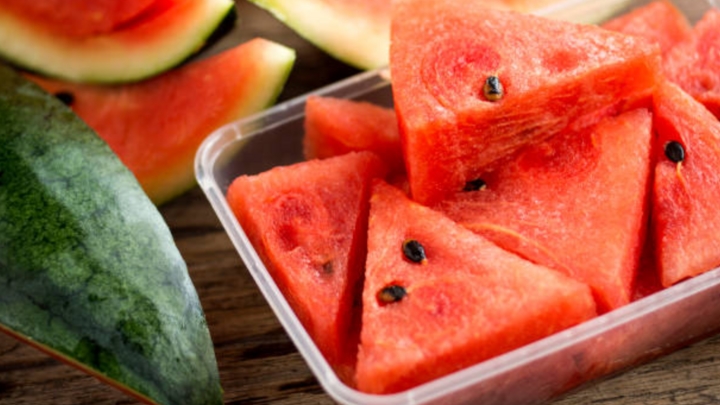Watermelons are a refreshing treat, packed with vitamins A and C, and low in calories. But how do you keep this delicious fruit fresh once it’s been cut?
Storing Cut Watermelon
Cutting up a watermelon and storing it in the fridge is a convenient way to have a ready-to-eat snack. However, if not stored properly, it can quickly spoil. One of the simplest and most effective methods is to use an airtight container or plastic wrap.
Place the watermelon slices neatly into a plastic or glass container with a tight-fitting lid. If you don’t have a container, wrap the plate with plastic wrap, ensuring no exposure. This prevents dehydration, limits air contact, and inhibits bacterial and mold growth.
Store the covered watermelon in the fridge. The cool temperature slows down the decomposition process, extending its shelf life. Even with optimal storage, aim to finish the watermelon within three days. After this period, it may become mushy and unsafe to eat.
Daily inspections are essential, even when properly stored. If you notice any strange appearance, odor, or liquid, discard it immediately to avoid food poisoning risks.
Keep the watermelon away from strong-smelling foods like fish or cooked dishes to prevent odor absorption, which can affect its taste.
If you have an abundance of watermelon and can’t consume it fresh, consider using it in salads, juices, or smoothies. This way, you reduce waste and create delicious treats.

Store cut watermelon for a maximum of 3-4 days. (Illustration: Istock)
Who Should Avoid Watermelon?
- Stomach ache sufferers: Watermelon has a cooling nature, which can aggravate stomach issues.
- Diabetics: The sweeter the watermelon, the higher the sugar content, which is not ideal for blood sugar control.
- People with kidney disorders: Excessive watermelon consumption can lead to water retention, edema, and an increased risk of acute heart failure.
- Those with a cold or flu: Watermelon’s cooling nature might prolong illness by causing the body to become chilled.
- Individuals with mouth ulcers: Contrary to belief, watermelon’s diuretic effect can dehydrate the mouth, slowing healing.
- Pregnant and postpartum women: Pregnancy can alter insulin levels, affecting blood sugar control. Watermelon’s sweetness can further impact this. Postpartum women are also susceptible to infection and digestive issues due to watermelon’s cooling properties.
- Seniors: Older adults with heart, stomach, or kidney conditions should exercise moderation to prevent complications.
According to VTC News

































